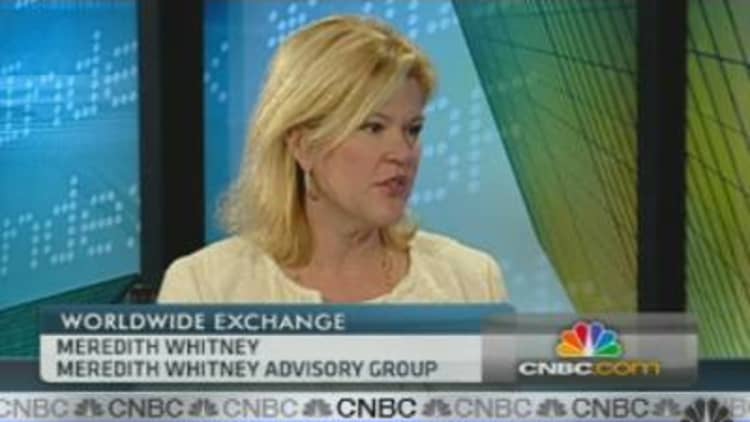Mortgage rates, which many feared would rise sharply when the Federal Reserve stops propping up the market at the end of March, may actually not budge much at all, analysts say.
But the longer-term impact of the Fed's pullback from the mortage market is less certain, they add.
The Fed, as expected, renewed its pledge to hold interest rates near zero and reiterated its plan to stop buying mortgage-backed securities and other assets this month. However, the central bank left the door open to more such purchases if the housing market or economy show signs of faltering.
Analysts had worried that the Fed's plan to stop buying mortgage-backed securities—which it has done over the past year—would cause home-loan rates to shoot higher because there would be fewer buyers of such securities.
But in recent weeks, the consensus has moderated so that some see little or no move in mortgage rates.
"I don't think we'll see a major reaction and probably not a big spike higher in rates even though the market is losing one of its major actors," said Kim Rupert, managing director of global fixed income analysis for Action Economics in San Francisco. "So we're going to have to find some other sources of demand. The market's pretty ingenious and it can fill that hole without serious consequences."
Of course, there are still those who fear a big pullback in both the mortgage and housing markets.
"If the Fed pulls back, that's a really big deal," Meredith Whitney, CEO of Meredith Whitney Advisory Group, told CNBC Tuesday. "Because there's no substitute buyer."

"The housing market surely will double dip," Whitney added. "The asset classes of MBS and Treasurys are priced for a material correction in my opinion. "
But others think the market is already prepared for such an event. The Fed let the market know months in advance that it would stop buying mortgages, a measure it initially employed to goose demand and keep mortgage rates low.
The Fed did surprise the market last month when it announced it was hiking the discount rate—a largely symbolic rate that the central bank charges banks for emergency loans—by half a percentage point. The market initially wobbled but quickly adjusted.
In fact, yields on the benchmark 10-year Treasury note have been fairly flat.
"By and large the end of the purchasing program is priced in," said Zach Pandl, economist at Nomura Securities in New York. "The Fed has signaled in its public comments that it is willing to bring the mortgage purchase program back if the economy disappoints. That limits the extent to which mortgage rates are going to rise."
To be sure, that analysis looks only at the immediate impact of the MBS program's end. The future could tell a different story.
The Fed has indicated only when it will stop buying mortgage-backed securities but has yet to disclose when it will begin to sell the billions already on its books. An influx of supply at a faster rate than the market can handle could ultimately drive up mortgage rates.
"Where the Fed may think they can get out of this for 40 or 50 basis points (0.40 to 0.50 of a percentage point), at the end of the day it may be 150 basis points," Yra Harris, of Praxis Trading, said in a CNBC interview. "That's something that nobody knows and they're depending on their models to tell them. But I think we've all learned some of their models may be suspect."
Investors who have had to accept lower yields because of artificially high demand created by Fed MBS buying may demand a better return once the mortgage sales begin, Harris said.
"The Fed has perverted the curve as they have done this and a lot of investors have had to either pay or get a a lower rate of interest than they otherwise would have, and I think they're going to exact some pound of flesh going forward," he said.
Demand is another issue.
According to the latest FDIC numbers, bank lending is at its lowest point in nearly 70 years, a situation experts attribute to both supply and demand. In that environment, the Fed is unlikely to try flooding the market with debt no one wants.
"The Fed seems to be heavily into orchestrating this whole thing," said Doug Roberts, chief investment strategist at Channel Capital in New York. "This is a bit unusual in that we are going into uncharted territory. My guess is you could have a possibly minor kind of move unless you have a major piece of economic news."
In addition to the other considerations, the Fed has to weigh the impact of its moves on the economy. So when the time comes to start unwinding the mortgage program and the Fed has to start dealing with inflation, the market is likely to get the signals well in advance.
"We have inflation. It's the impact of inflation that hasn't reared its ugly head," said Kevin Mahn, managing director and chief investment officer at Hennion & Walsh in Parsippany, N.J. "The Fed needs to start addressing that without curtailing the stimulus they've provided the economy. They're in the position now where they can do that."
—Reuters contributed to this report.


